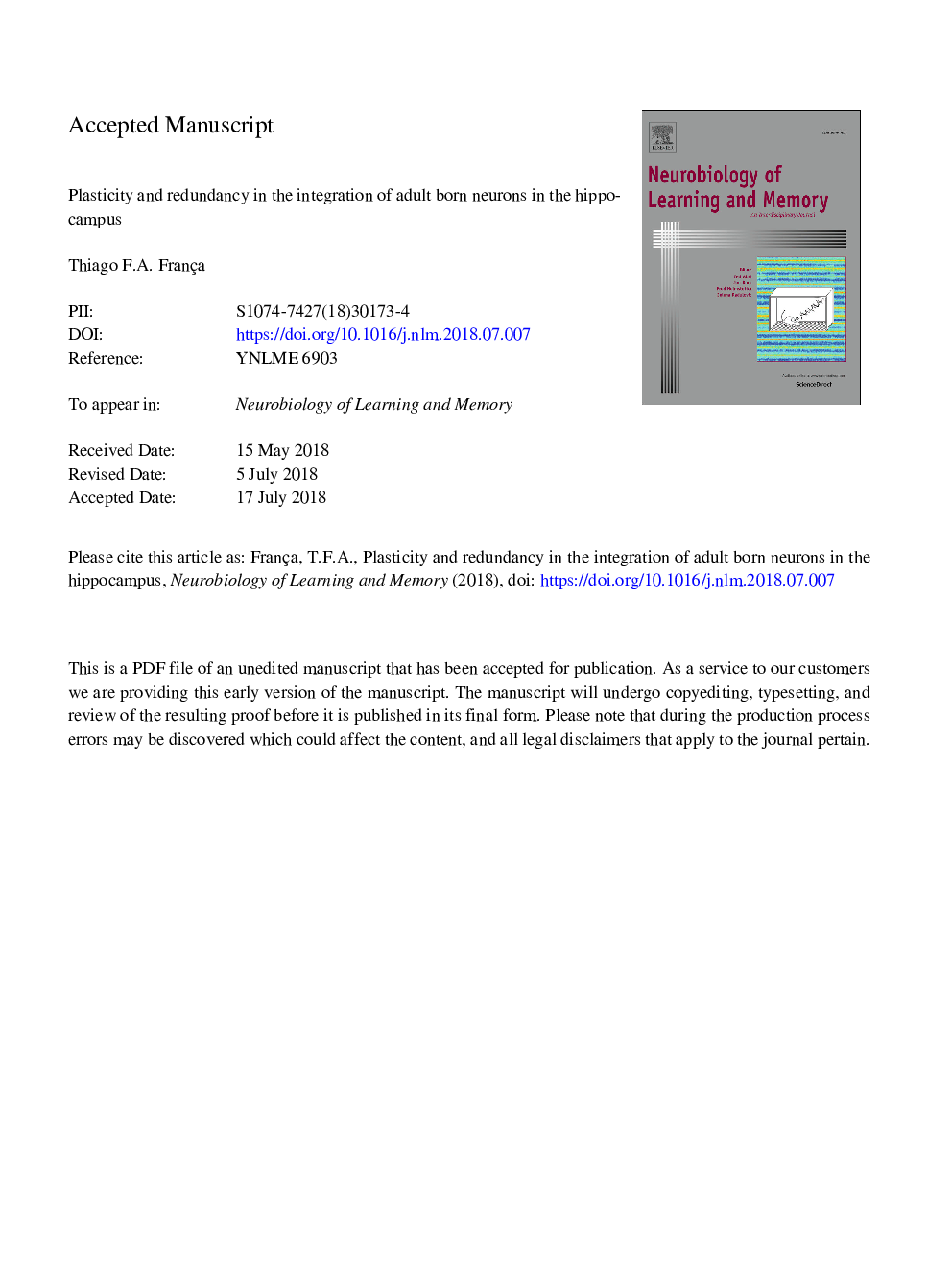| Article ID | Journal | Published Year | Pages | File Type |
|---|---|---|---|---|
| 7298635 | Neurobiology of Learning and Memory | 2018 | 30 Pages |
Abstract
Hippocampal neurogenesis (HN) is an extreme form of plasticity that inevitably rewires the hippocampal circuit and this rewiring was put forward as a possible mechanism for neurogenesis' behavioral effects. Here, I critically evaluate multiple lines of evidence to argue that structural plasticity induced by HN is, to a large extent, functionally redundant and thus has limited impact on behavior. The associative plasticity rules along with properties of immature neurons should only allow the survival of new neurons whose pre and postsynaptic partners have correlated activity, leading to functional redundancy. Moreover, non-redundant rewiring, even with its computational benefits, would impair meaningful communication between the hippocampus and other brain regions. This implies that associative plasticity rules constrain structural plasticity induced by neurogenesis, allowing the brain to balance plasticity and stability to maintain proper functioning. It also implies that behavioral effects of HN are mediated by other mechanisms apart from circuit rewiring.
Related Topics
Life Sciences
Neuroscience
Behavioral Neuroscience
Authors
Thiago F.A. França,
